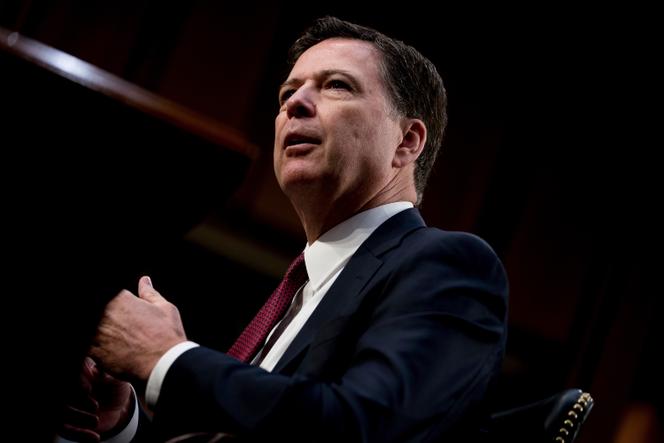


James Comey was charged Thursday, September 25, with lying to Congress in a criminal case filed days after President Donald Trump appeared to urge his attorney general to prosecute the former FBI director and other perceived political enemies.
Following the indictment, Comey declared his innocence and said he was ready to face the criminal charges against him. "My family and I have known for years that there are costs to standing up to Donald Trump, but we couldn't imagine living any other way," he said in a video posted to Instagram. "I'm not afraid, and I hope you're not either," he said.
His son-in-law resigned as a federal prosecutor minutes after the former FBI director was indicted Thursday. Troy Edwards quit his job "to uphold my oath to the Constitution and the country," he wrote in a one-sentence resignation letter addressed to Lindsay Halligan, the newly appointed acting US Attorney in Virginia’s Eastern District, the office that charged Comey. Edwards was the deputy chief of the National Security Section, a prestigious role in a US attorney’s office that covers the Pentagon and CIA headquarters, handling some of the highest-profile espionage cases.
The indictment makes Comey the first former senior government official involved in one of Trump's chief grievances, the long-concluded investigation into Russian interference in the 2016 election, to face prosecution. Trump has for years derided that investigation as a "hoax" and a "witch hunt" despite multiple government reviews showing Moscow interfered on behalf of the Republican’s campaign, and has made clear his desire for retribution.
Trump on Thursday hailed the indictment as "JUSTICE FOR AMERICA!" Attorney General Pam Bondi, a Trump loyalist, and FBI Director Kash Patel, a longtime vocal critic of the Russia investigation, issued similar statements. "No one is above the law," Bondi said.
The criminal case is likely to deepen concerns that the Justice Department under Bondi is being weaponized in pursuit of investigations and now prosecutions of public figures the president regards as his political enemies. It was filed as the White House has taken steps to exert influence in unprecedented ways on the operations of the Justice Department, blurring the line between law and politics for an agency where independence in prosecutorial decision-making is a foundational principle.
Comey was fired months into Trump’s first administration and since then has remained a top target for Trump supporters seeking retaliation related to the Russia investigation. He was singled out by name in a Saturday social media post in which Trump appeared to appeal directly to Bondi to bring charges against Comey and complained that Justice Department investigations into his foes had not resulted in charges.
"We can’t delay any longer, it’s killing our reputation and credibility," Trump wrote, referencing the fact that he himself had been indicted and impeached multiple times. "JUSTICE MUST BE SERVED, NOW!!!"
The office that filed the case against Comey, the Eastern District of Virginia, was thrown into turmoil last week following the resignation of chief prosecutor Erik Siebert, who had not charged Comey and had faced pressure to bring charges against another Trump target, New York Attorney General Letitia James, in a mortgage fraud investigation.
The following evening, Trump lamented in a Truth Social post aimed at the attorney general that department investigations had not resulted in prosecutions. He nominated as the new US attorney Lindsey Halligan, a White House aide who had been one of Trump’s personal lawyers but lacked the federal prosecution experience that would typically accompany the responsibility of running one of the Justice Department's most prestigious offices.
Halligan had rushed to present the case to a grand jury this week. Prosecutors evaluating whether Comey lied to Congress during testimony on September 30, 2020, had until Tuesday to bring a case before the five-year statute of limitations expired. The push to move forward came even as prosecutors in the office had detailed in a memo concerns about the pursuit of an indictment.
The two-count indictment consists of charges of making a false statement and obstructing a congressional proceeding.
